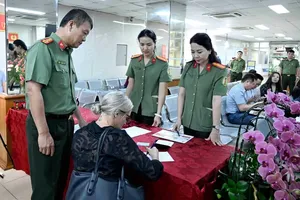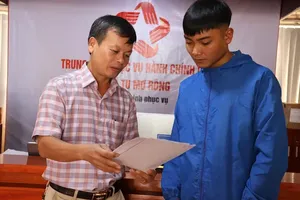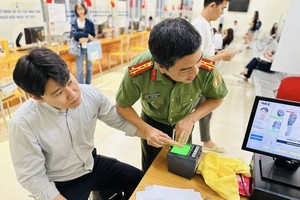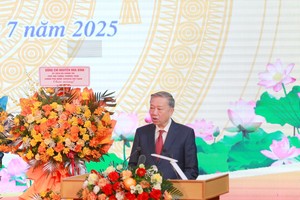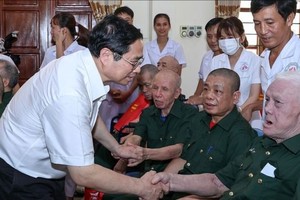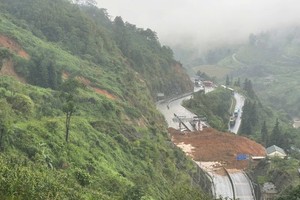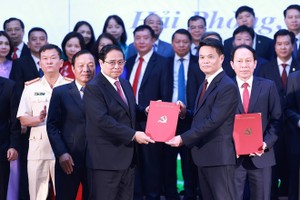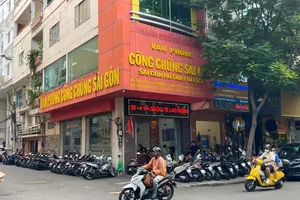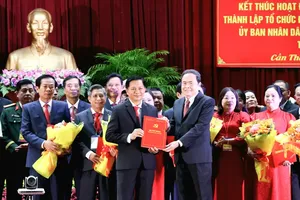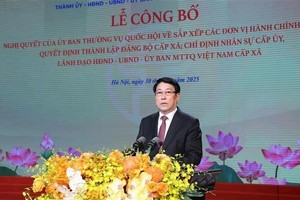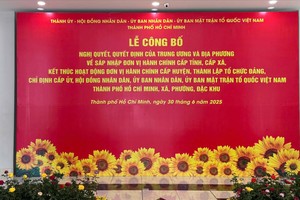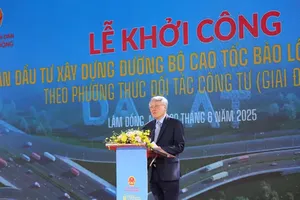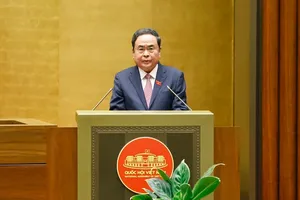This year Viet Nam commemorates the 35th anniversary of the liberation of Saigon and the re-unification of North and South Vietnams into one single country. This day, April 30, 1975, has particular significance for Europe and especially for those young Germans who were becoming active in the student movement.
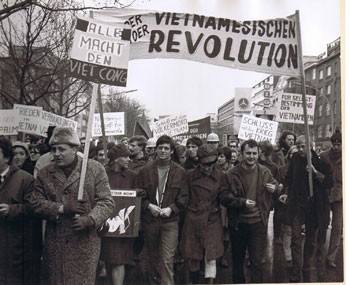
Do not forget that Germany in 1975 was also a divided country: not North and South but East and West. The governments of each part of Germany (GDR and FRG) reflected the opposing ideological systems of communism and capitalism. But one rather special feature of the division of Germany was that the city of Berlin became the link between the two political systems. Berlin became not just a channel for communication but a magnifying glass which you could use to scrutinize both systems.
In the late 1960s those of us who were students were in principle critical of any authority. We were being trained by our universities to learn and think independently. Inevitably many of us were attracted by the notion of liberating subject peoples from colonialism and of overcoming oppression and injustice. In this intellectual climate, Vietnam’s struggle for independence became synonymous with our political idealism.
But, talking about the student movement in the Federal Republic of Germany raises the question of exactly who were the members of this movement? They were mainly young people from middle-class families; they were part of a material saturated society. The movement was also shaped by the memories of the Nazi government in Germany during the Second World War, by the Cold War and the construction of the Berlin Wall, above all by the split of Germany into two independent states.
In the so-called, Third World, it was the time of independence movements, liberation struggles and the dismantling of the commercial and political empires of the 19th century. The conflict in Vietnam starting with the ending of French colonial rule over Indochina, and culminating in the Vietnam War became the icon for the struggle of an oppressed people against the forces of international imperialism. The "International Vietnam Congress” which was held in West Berlin in February 1968 was a direct expression of the key political role played by the Vietnam War.
Marching to express our solidarity with Vietnam’s students and intellectuals, we shouted ‘HO; HO; Ho Chi Minh’. It felt very good and indeed we were convinced that we could change the facts of exploitation and oppression and that our solidarity would contribute to making the world fairer and a better place.
My own struggle shifted, after the inevitable university exams, from the streets to the workplace. During the seventies the war in Viet Nam became a routine story on TV and in the news papers. And by 1975 we all in Germany knew that the USA had no chance to win the war in Viet Nam.
The question remains: What did I do on this particular day? Alas, I cannot remember. We in West Germany had no reason to celebrate. There was no special marching by students or others to mark the liberation.
To try and help me recall the atmosphere of that time I went to the archives and looked up the Berlin news papers. The papers were full of correspondents filing their last reports from newly liberated Saigon.
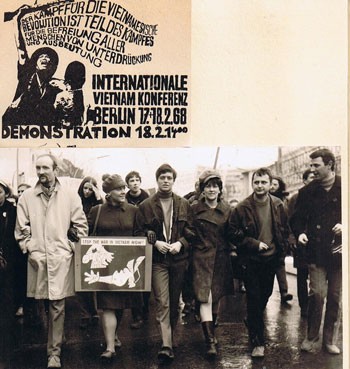
Quote:
Tagesspiegel April 30, 1975
"All Americans are flown out of Saigon.
After South Vietnam's ultimate request of government - helicopter airlift, however it was interrupted - Unclear situation. "
Tagesspiegel May 1, 1975
"Saigon has unconditionally surrendered to the Vietcong
Capital of South Vietnam occupied by Communist troops occupied – the city kept quiet "
Eastern correspondents send their reports:
Berliner Zeitung, 01. 05. 1975 Headlines:
"Long live May 1
Today, Berlin workers meet at 9 AM in a big demonstration on Karl-Marx-Allee
State telegram to the representatives of the RSV said: “We salute the Vietnamese people’s victory”
RSV-flag was hoisted at the Presidential palace "
It was just a normal week which started with a holiday, 1st of May, workers day.
People on both sides of the Berlin wall, in East and West were relieved and thankful that all the fighting, killing, murder and atrocities had come to an end. Peace for the people in Viet Nam, at last.
Friedrich Zimmermann
The author is a German journalist who took to the street to protest the American war in Vietnam during the wartime.
